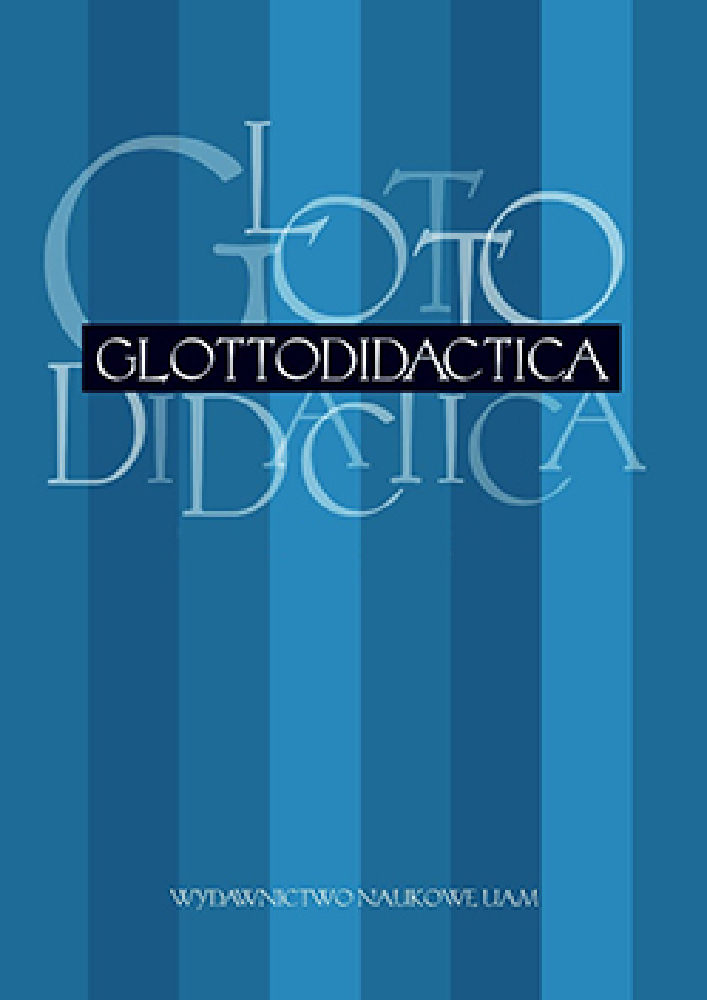Abstract
German language structures analysis of „turn“-concepts is interconnected with the term concept itself on the one side and with the discourses of “turn” on the other side. Furthermore there is a deep need to research the concepts and conceptuality of German language structures of “turn” according to the newest findings of lexicography, communication studies and information linguistics, allowing the precise comparison within several similar discourses of “turn”. Finally, the concept items of “turn” will be comprehensively described and illustrated using online analyses of “turn” structures in narrative and argumentative situations.Literaturhinweise
Beck, U., 1999. Schöne neue Arbeitswelt. Vision: Weltbürgergesellschaft. Frankfurt am Main: Campus.
Belica, C., 2000. Kookkurrenzdatenbank CCDB. Eine korpuslinguistische Denk- und Experimentierplattform für die Erforschung und theoretische Begründung von systemisch-strukturellen Eigenschaften von Kohäsionsrelationen zwischen den Konstituenten des Sprachgebrauchs. Mannheim: Institut für Deutsche Sprache.
Duden – Wissenschaftlicher Rat (Hrsg.), 2000. Das große Wörterbuch der deutschen Sprache. 10 Bände auf CD-ROM. Mannheim: Bibliographisches Institut.
Fraas, C., 1996. Gebrauchswandel und Bedeutungsvarianz in Textnetzen. Die Konzepte IDENTITÄT und DEUTSCHE im Diskurs zur deutschen Einheit. Tübingen: Narr.
Fukuyama, F., 1995. Konfuzius und die Marktwirtschaft. Der Konflikt der Kulturen. München: Kindler.
Gerzymisch-Arbogast, H., 1996. Termini im Kontext. Tübingen: Gunter Narr Verlag.
Göpferich, S., 1996. Von der Terminographie zur Textographie. Tübingen: Gunter Narr Verlag.
Götz, D., Haensch, G., Wellmann, H. (Hrsg.) 2010. Großwörterbuch Deutsch als Fremdsprache. Hannover: Langenscheidt.
Hellmann, M.W., 1996. Lexikographische Erschließung des Wendekorpus, In: Weber, N. (Hrsg.). Semantik, Lexikographie und Computeranwendungen. Tübingen: Niemeyer, 195- 216.
Hellmann, M.W., 1999. Wende-Bibliografie. Literatur und Nachschlagewerke zu Sprache und Kommunikation im geteilten und vereinigten Deutschland ab Januar 1990. Mannheim: Institut für Deutsche Sprache -amades- (amades – Arbeitspapiere und Materialien zur deutschen Sprache 1/99).
Hellmann, M.W., 2004. Wörter in Texten der Wendezeit. Ein Wörterbuch zum „Wendekorpus” des IDS. Mai 1989 bis Ende 1990. Unter Mitwirkung von P. Nikitopoulos und C. Melk. CDROM und Begleitband (Vorwort des Autors mit Anmerkungen und zusätzlichen Registern der amades-Redaktion). Mannheim: Institut für Deutsche Sprache – amades - (amades – Arbeitspapiere und Materialien zur deutschen Sprache 1/04).
Herberg, D., Steffens, D., Tellenbach, E., 1997. Schlüsselwörter der Wendezeit. Wörter-Buch zum öffentlichen Sprachgebrauch 1989/90. Berlin–New York: de Gruyter.
Jäger, S., 2009. Kritische Diskursanalyse. Eine Einführung. 5. Auflage, Münster: Unrast.
Kovtyk, B., 1995. Syntaktisch-semantische Kompatibilitätswörterbücher als Grundlage der Verstehensprozesse – Ein Versuch: „Synsmaker” In: Spillner, B. (Hrsg.). Sprache: Verstehen und Verständlichkeit. Frankfurt am Main–New York: Peter Lang Verlag, 224-231.
Kunze, C., Wagner, A., 2001. Anwendungsperspektiven des GermaNet, eines lexikalischsemantischen Netzes für das Deutsche. In: Lemberg, I., Schröder B., Storrer A. (Hrsg.). Chancen und Perspektiven computergestützter Lexikographie. Tübingen: Niemeyer. Lexicographica Series Maior, 229-246.
Lemnitzer, L., Kunze, C., 2007. Computerlexikographie. Tübingen: Gunter Narr Verlag.
Liedtke, F. et al., 1991. Begriffe besetzen. Strategien des Sprachgebrauchs in der Politik. Opladen: Westdeutscher Verlag.
Prinz, J., 2002. Furnishing the Mind: Concepts and Their Perceptual Basis. Cambridge, MA.: MIT Press.
Titscher, S., Wodak, R., Meyer, M., Vetter, E., 1998. Methoden der Textanalyse: Leitfaden und Überblick. Wiesbaden: Westdeutscher Verlag.
Wahrig-Burfeind, R., Wahrig, G., 2009. Wahrig Wörterbuch der deutschen Sprache. München: Verlag dtv.
GermaNet: http://www.sfs.uni-tuebingen.de/lsd/ (Zugriff am 10.07.2012).
http://cyc.com/cyc/company/news/OpenCyc (Zugriff am 10.07.2012).
http://de.wikipedia.org/wiki/I_Have_a_Dream (Zugriff am 10.07.2012).
http://de.wikipedia.org/wiki/Konzept (Zugriff am 10.07.2012).
http://lit.csci.unt.edu/~wordnet/ (Zugriff am 10.07.2012).
http://www.clres.com/dpp.html (Zugriff am 10.07.2012).
http://www.dradio.de/dkultur/sendungen/laenderreport/1037379/ (Zugriff am 10.07.2012).
http://www.duden-online.de (Zugriff am 10.07.2012).
http://www.gfds.de/publikationen/der-sprachdienst/zeit-woerter/wende/(Zugriff am 10.07.2012).
http://www.mindmap.0rg.pl/?mindmap=Opencyc (Zugriff am 10.07.2012).
OWID: http://www.owid.de/ (Zugriff am 10.07.2012).
WordNet: http://wordnet.princeton.edu/ (Zugriff am 10.07.2012).
Lizenz
Authors
Authors of texts accepted for publication in Glottodidactica are required to complete, sign and return to the editor's office the Agreement for granting a royalty-free license to works with a commitment to grant a CC sub-license.
Under the agreement, the authors of texts published in Glottodidactica grant the Adam Mickiewicz University in Poznań a non-exclusive, royalty-free license and authorize the use of Attribution-NoDerivatives 4.0 International (CC BY-ND 4.0) Creative Commons sub-license.
The authors retain the right to continue the free disposal of the work.
Users
Interested Internet users are entitled to use works published in Glottodidactica since 2016, under the following conditions:
- attribution - obligation to provide, together with the distributed work, information about the authorship, title, source (link to the original work, DOI) and the license itself.
- no derivatives - the work must be preserved in its original form, without the author's consent it is not possible to distribute the modified work, such as translations, publications, etc.
Copyrights are reserved for all texts published before 2016.
Miscellaneous
Adam Mickiewicz University in Poznań retains the right to magazines as a whole (layout, graphic form, title, cover design, logo etc.).




